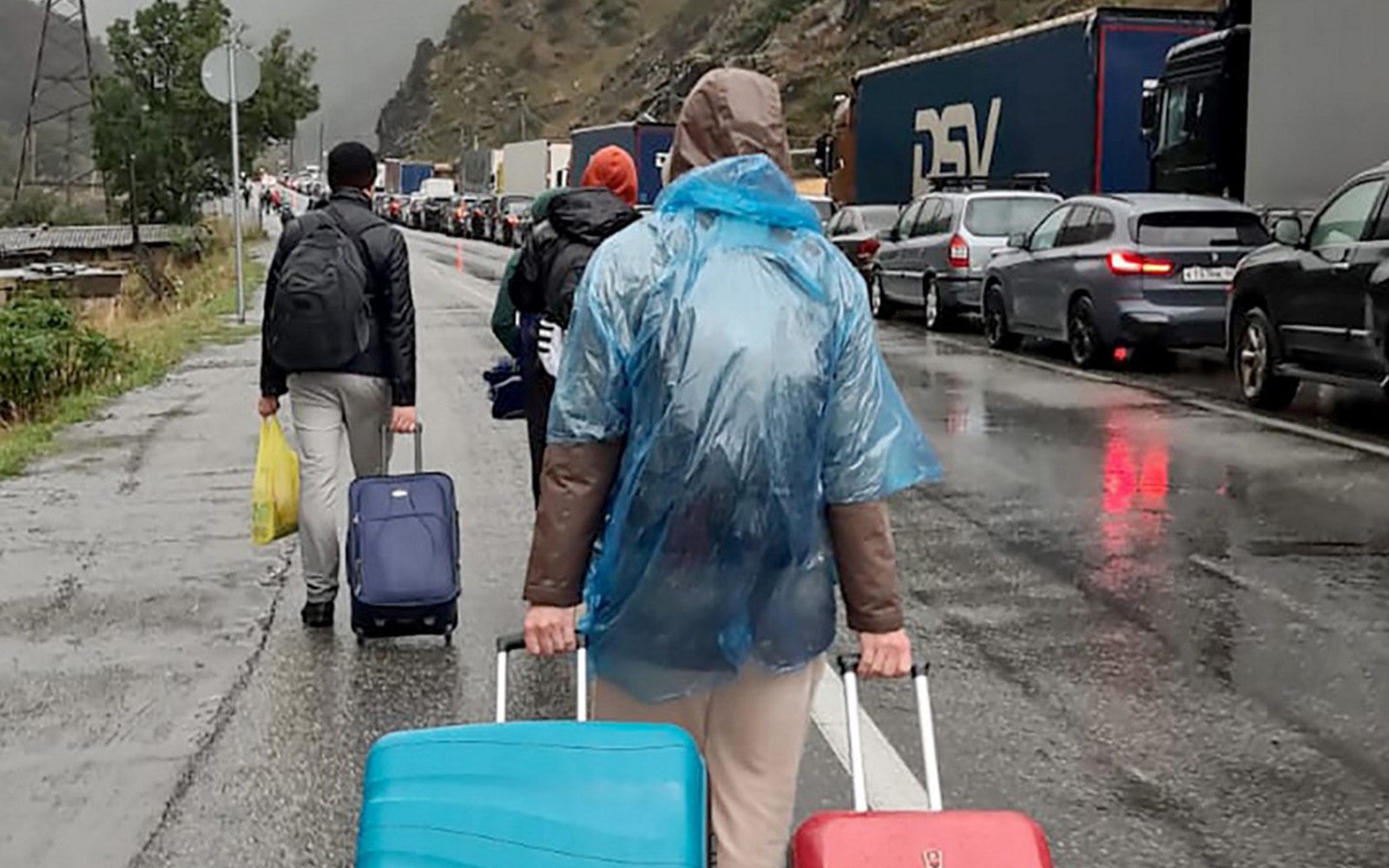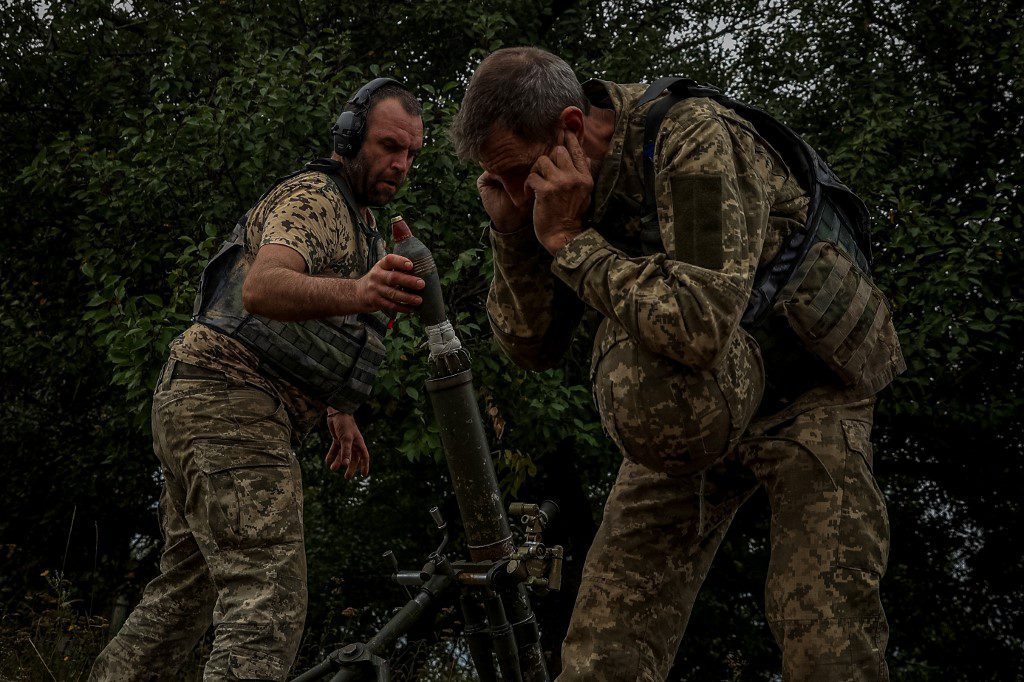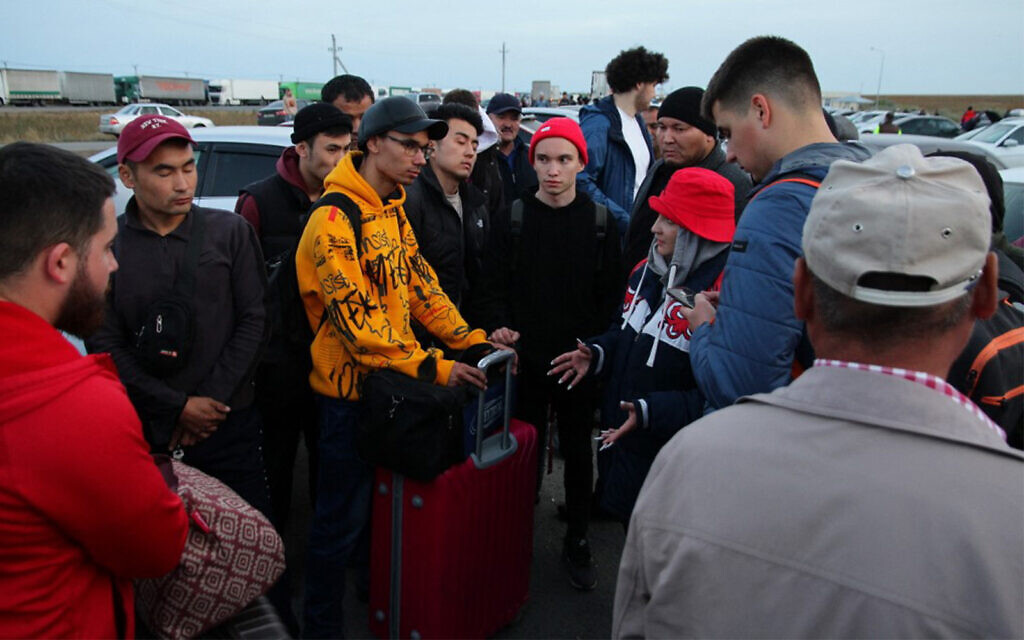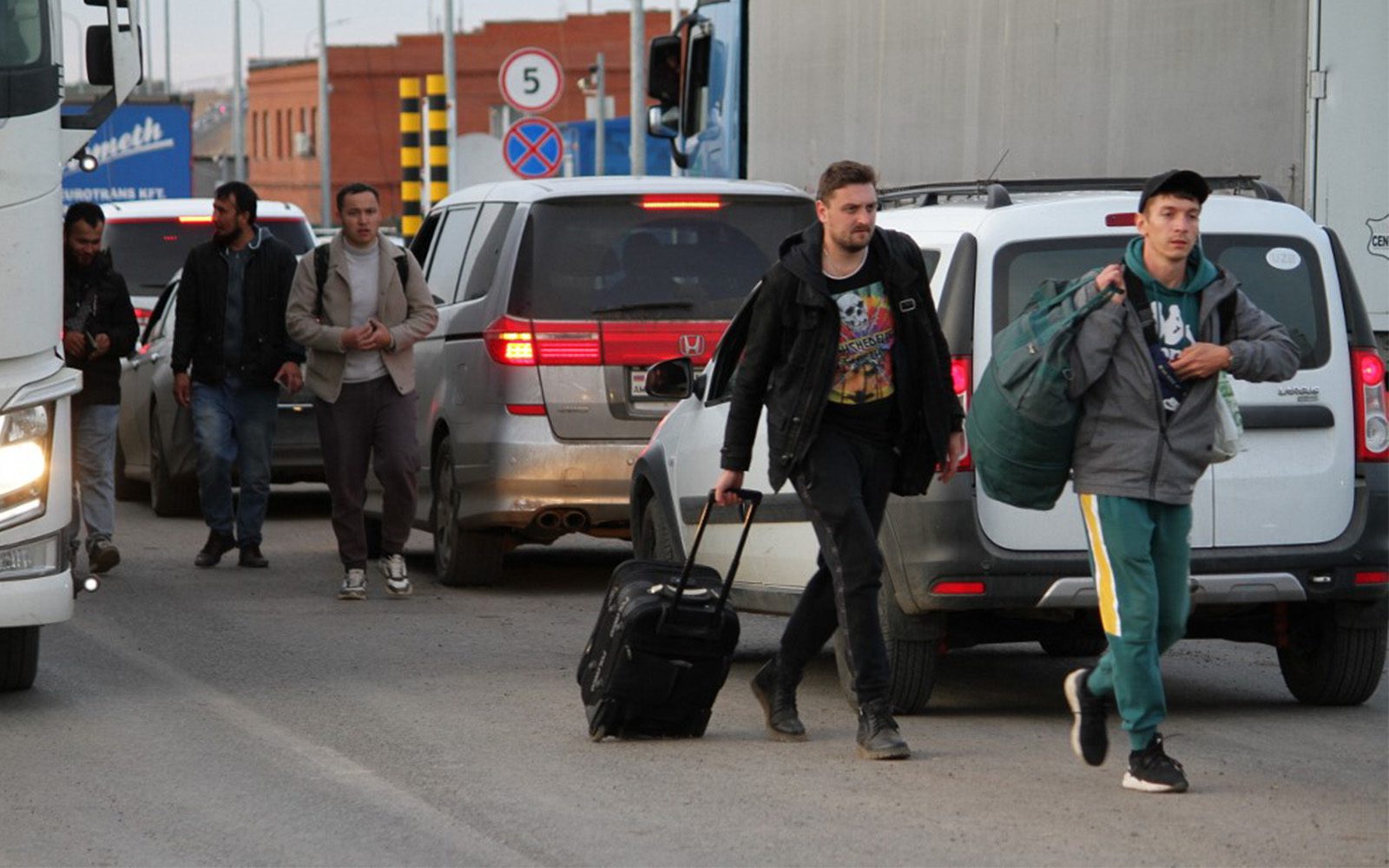Georgia and Kazakhstan announced on Tuesday that tens of thousands of Russians have flocked to their country from neighboring Russia since the partial military mobilization to fight in Ukraine was announced.
Russian President Vladimir Putin announced last week the call-up of thousands of reservists, sparking protests across the country and a rush of Russian men to the border.
Fyodor said that he fled to Russia’s border with Kazakhstan in fear of reports that even old and infirm were called up to fight.
Like other people AFP spoke to, he requested that his full name not be used.
“There is complete chaos [in Russia]said the 24-year-old. “We don’t understand what will happen.”
He decided to leave for Kazakhstan on Saturday morning “as a precaution” to “take a head start, just in case.”

Russians arrive in Kazakhstan outside the railway station in the city of Uralsk (Ural), September 27, 2022 (AFP)
Kazakhstan said on Tuesday that about 98,000 Russians have entered the country since the mobilization was announced.
It took Fyodor about 48 hours, including a five-kilometre (three-mile) walk to the border and a six-hour queue, before he reached the northern Kazakhstan city of Ural.
“It was raining, it was cold,” he said, “but six hours of waiting…well, that was reasonable under the circumstances.”
Vladislav, a 25-year-old waiter, found shelter in the Kazakh capital Astana on Monday evening.
In Russia, he said, “I can go to work or get groceries and never come back… I don’t want to die.”
“A week ago, I did not imagine that I would be in Kazakhstan,” he told AFP, adding that he “wanted to thank the Kazakh people for welcoming him so nicely.”
Kazakhstan’s President Kassym-Jomart Tokayev said on Tuesday that his country would guarantee the safety of Russians fleeing a “hopeless situation”.
“This is a political and humanitarian issue,” Tokayev said.
Tokayev added: “The territorial integrity of states must be immutable.”
Kazakhstan condemned Moscow’s invasion of Ukraine and called for its territorial integrity to be respected, as Russia held annexation referendums in four Ukrainian regions. The sounds were widely mocked as a hoax.
The Russians also flocked to Georgia on the Black Sea.

People carrying luggage pass vehicles with Russian license plates on the Russian side of the border towards the Nizhny Lars customs checkpoint between Georgia and Russia near the town of Vladikavkaz, September 25, 2022. (AFP)
Georgia said on Tuesday that the number of Russians arriving each day has nearly doubled since the draft was announced.
“Four to five days ago from 5000 to 6000 [Russians] They were arriving in Georgia daily. Interior Minister Vakhtang Gumeluri told reporters that the number had risen to about 10,000 per day.
Georgia and its neighbor Armenia, which do not require visas for Russians, have been major destinations for fleeing Russians since the war began on February 24.
During the first four months of the war, nearly 50 thousand Russians fled to Georgia and another 40 thousand to Armenia.
On Tuesday, the local Interior Ministry in a Russian region on the border with Georgia said there were about 5,500 vehicles waiting to cross the Georgian border, describing the situation as “extremely tense”.

Ukrainian soldiers launch a mortar launcher at a position along the front line in the Donetsk region on September 26, 2022, amid Russia’s invasion of Ukraine. (Anatoly Stepanov/AFP)
The ministry added that a mobile draft office will be set up at the border in the “near future”.
The White House said Tuesday that Russians fleeing the war can seek asylum in the United States.
“We believe that regardless of their nationality, they can apply for asylum in the United States,” White House Press Secretary Karen-Jean-Pierre said.
It added that arrivals will be evaluated on a case-by-case basis.
Monday young man They shot a Russian officer In the recruitment office to protest the call-up of the army.
There were also sporadic attacks by burning recruitment offices and protests in Russian cities, which resulted in the arrest of at least 2,000 people.
Russia seeks to bolster its army as its offensive in Ukraine faltered and destroyed its forces, and Kyiv recaptured swathes of territory in a violent counterattack.
Times of Israel staff contributed to this report.




/cdn.vox-cdn.com/uploads/chorus_asset/file/25550621/voultar_snes2.jpg)




More Stories
Two children killed, 11 injured in stabbing attack at Taylor Swift dance party in UK, 17-year-old arrested
Fiber optic communications networks are being sabotaged – DW – 07/29/2024
Putin warns US against deploying long-range missiles in Germany | NATO